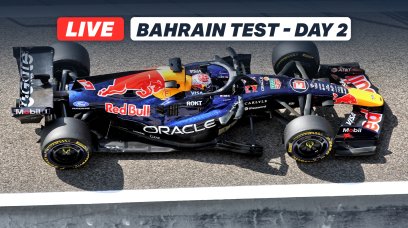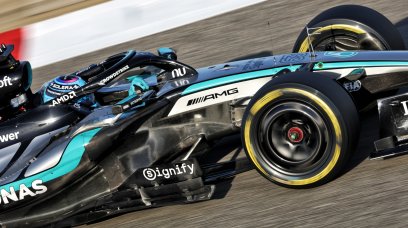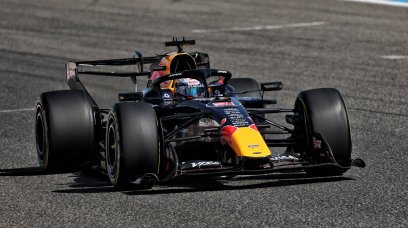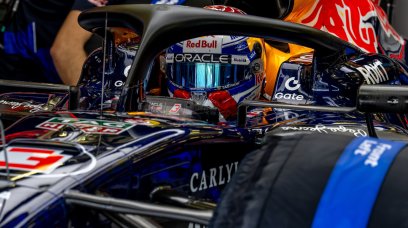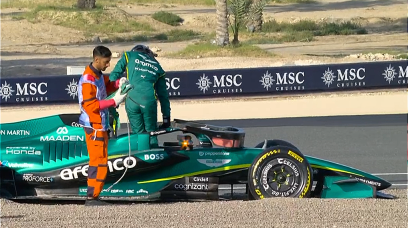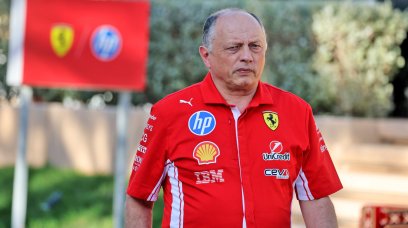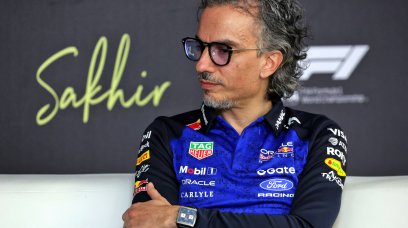The first mistake that Renault made when it returned as a works team to F1 in 2016 was to declare it had a 100-race plan to return the good ship Enstone to world-championship challenging ways. These xxx-race or game plans to turn a faltering outfit into a winning machine are troublesome, as whilst the suits in their boardrooms like to have everything mapped out for the investors, it also creates unofficial deadlines for a team to meet to be seen to be on the path to success. Half-way through the plan for example, you would be expecting to be a regular Q3 fixture, and challenging for podiums, and on a good day, maybe finish ahead of a Mercedes, Ferrari or Red Bull. By race 75, you'd want to be a consistent hauler of podiums, perhaps having picked up a grand prix win or two and be ready to mount a championship bid. Renault's 100-race plan ended with the 2020 season-finale in Abu Dhabi after which it rebranded as Alpine, with just a couple of podiums through Daniel Ricciardo to show for its efforts. As Alpine, it has earned a grand prix win via Esteban Ocon, with he and Pierre Gasly also scooping a first Enstone double podium since the 2013 Korean GP in the wet and wild Sao Paulo GP. That 100-race plan was often hung around the team's neck like the Albatross, but unlike the Ancient Mariner of Coleridge's epic poem, the team is not damned to wander the F1 ocean for eternity. Indeed, the one thing this team has sorely been missing in recent years, is a plan. And whatever you make of the decision to close its factory power unit operation at Viry to revert to customer Mercedes status for 2026, it is a plan.
Alpine's power unit quandary
Alpine was in something of a good place in 2022, it had a settled driver line-up, a good all round package and for the first time in a while, its upgrades were actually adding decent performance to the car. But it all started to go wrong. First, as RacingNews365 exclusively revealed at the time, it bungled Oscar Piastri's contract situation that forced him into the arms of McLaren, as Fernando Alonso also defected to Aston Martin. As Oscar Wilde might say, to lose one F1 driver might look like misfortune; to lose two, looks like carelessness. Then, CEO Laurent Rossi launched an astonishing broadside against his own team in early 2023, labelling them as "amateurs" following a poor start to the season. He was promptly removed by Renault chief Luca de Meo, with former advisor Alain Prost then lashing out at Rossi, believing he tried to cover up his lack of F1 knowledge by going in hard. Since then, the team has also lost two team principals, a sporting director, a chief technical officer, a technical director, a head of aerodynamics and another driver with Esteban Ocon taking his leave after the 2024 season. The second of those team principals was Bruno Famin, who as an engine guru, stepped down to return to Viry, just as talk began to grow of Renault's idea to shut down the F1 project and revert the team to customer status - which has now been confirmed as a Mercedes supply for 2026, taking over Aston Martin's deal as it joins with Honda. Famin was replaced by Hitech boss Oliver Oakes, with the flamboyant Flavio Briatore drafted in as a senior advisor to de Meo, to be his eyes and ears.
Alpine power unit decision
One theory behind the decision to shutter the works Renault engine programme is that it is a way of trimming the fat around the team, to prepare it for a sale perhaps. Be that as it may, but the Oakes-Briatore partnership can be a force for good, as can the decision to revert to customer status - the first works team in the turbo hybrid era to do so. Famin was only ever a stop-gap after Otmar Szafnauer's 2023 removal during the Belgian Grand Prix weekend, and Oakes offers a long-term base from which the team can stabilise after its turbulent period and rebuild from the bottom up as opposed to the top-down idea that had been prevalent in the past. In Briatore, there is a force of nature in F1 who doesn't care who he upsets and knows what it takes to turn a team into a championship-challenging outfit, having done so twice for Enstone with Benetton in the Michael Schumacher era and a decade later with Fernando Alonso. Now, it must be said however, that the lack of performance from the Renault turbo hybrid units could be traced back to Briatore's decision before crash-gate to turn off the money taps to Viry in the late 2000s as the V8 units were venerable and well-developed. But F1 is full of ifs, buts and maybes. The decision to take on Mercedes units allows Alpine to focus squarely on turning itself into a competitive force in F1, with a recent upgrade package bringing benefits to Ocon and Pierre Gasly after a barren run of one point since the summer break heading into Mexico. It is not to say that this decision is a silver bullet that will suddenly propel Alpine to the front of F1, major, lengthy and deep surgery is needed at the team to achieve that. But it is the making of a plan. For a team that was once welded to the 100-race plan, no such targets exist this time, but it finally has a direction to follow, and that has to be worth something.
Most read
